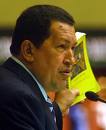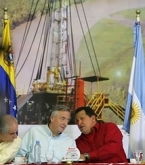Jamaica: A Reggae Nation
Miguel Lozano
Expression of the root of music in Jamaica, former Prime Minister Percival Patterson was the one in charge to receive the prize granted in 2012 by the Association of the Reggae Industry to The Skatalites, a mythical band of which he was the manager.
The group, created in 1964, is considered a creator of ska, a precursor of reggae and other slopes of present Jamaican music, cultural reference of the Caribbean country anywhere in the world.
Between the 22 awarded artists, it was including posthumously Peter Tosh - a pioneer of reggae -, whose son Andrew Tosh performed in the tribute during which Morgan Virgo was presented as the Artist of the Year and the song One By One by Laza Morgan, as the Song of the Year.
The awarding ceremony is included into to a bulky calendar of festive activities made every February since 2008 with the official endorsement called "Month of Reggae" as part of the actions for the defense of Jamaican music and preservation of its roots.
The link between Patterson and The Skatalites in a month dedicated to the preservation of the musical trend brings a demonstrative fact of the influence of reggae in the island to the memory, the concert One Love on April 22, 1978, that had Peter Tosh and Bob Marley among its protagonists.
The initiative of Marley, an ícon of reggae, took to extend the musical terms to turn the presentation at the National Stadium of Kingston in a political event, by the hand of the musician's philosophy centered in tolerance, understanding and peace.
In the middle of strong confrontations between those in favor of then Prime Minister Michael Manley, of the Popular National Party and Edward Seaga, of the Labour Party of Jamaica, Marley called both politicians to the stage and made them have a handshake.
The fact happened during the presentation of Bob Marley and The Wailers and remains like a directed action to use music to improve human behavior.
With more than 30,000 spectators and one impressive troops of talented musicians, this was the first concert of Bob Marley in Jamaica, after an attack against his life in 1976 during which he was wounded and that took to him to leave the country.
Unfortunately, it was not enough to stop the violence and there is the belief that Manley and Seaga never shook hands any more until 1981, in Bob Marley's funeral to honor a figure that both admired though they were irreconciliable political actors.
From the initial time of The Skatalites (disintegrated and soon rearmed with renovation of its musicians) and the concert of One Love, Reggae mainly crossed a way of recognition universal, although non free of the mistrusts of the musical industry.
Despite the Grammy Award was established since 1985 to the Best Reggae Record, this award is still considered one of the least important, practically delivered "behind the stage", out of the broadcast segment of the show on the television.
Its development has not been able to avoid the influence of negative factors such as bribering those who edit, publish and transmit the music, which acoording to the Jamaican Reggae Industry Association, covers electronic and written press as well.
Producer Stephen Stewart told Jamaican newspaper Observer that such a practice stops the transmission of recordings with a great quality, facilitating things for a music with a lot of less merit. Another obstacle, in the opinion of British critic David Rodigan, a historian of the reggae music, is the loss of identity in some artists.
"Could you imagine Aretha Franklin singing just wearing her bra and panties?... No! However, that is what most stars today do, to attract the attention of the press media," Rodigan said.
Rodigan coincided with cultural authorities in making the reggae music history know better, and the conscience that made it original and popular. Regarding this, Jamaican Culture Minister Lisa Hanna promised she would work on terms of monetary and fiscal support to strenghten reggae music.
"We are a reggae nation. We have to go back to claim our cultural position in the world," she said. In a speech on the celebration of the Reggae Month, Jamaican Tourism Minister Damion Crawford urged musicians to revert the role of reggae.
Tourism Assistant Director Jason Hall said Jamaica is taking the risk to lose the control and property of reggae music, so he called for taking measures to preserve it. "Reggae music has become one of the mostly listened all around the world.
Not only it offers entertainment but also inspiration for people from all over the world to improve themselves," Hall said. In Jamaica, reggae music is a genuine expression from the Jamaican authentic people, but now faces the challenges of a commercial world, a factor that not always benefits small countries' typical values.
The challenge of the preservation of reggae is another job to do, since Jamaican reggae reaches its first 50 yearsof independence in the middle of obstacles going from the climatic change to the economy, including scourges such as violence and drug trafficking.
It is precisely in difficult moments, when legitimate values get a greater relevance. This is quite clear for Jamaican authorities, since they see in the preservation of reggae music an element in favour of their own nationality, and the promotion of better human values
ml












